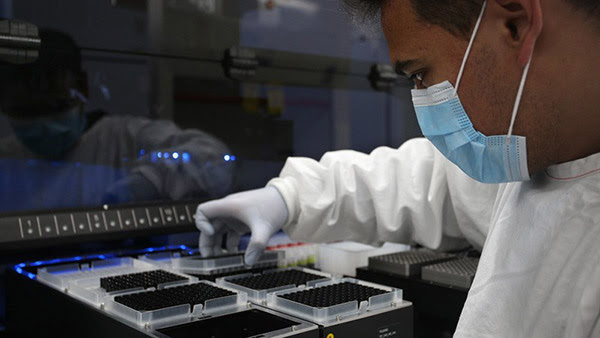
Genome sequencing to squash a second wave
Genome sequencing can aid in quickly tracking and controlling COVID-19 infections — helping to defuse a second wave after countries emerge from lockdowns. By comparing sequences, researchers can rule out possible lines of transmission if two sequences don’t match, or link together cases that do. In Australia, for example, sequence data have helped to resolve the true source of exposure for a health-care worker, proving that they contracted the virus at a social event and not from a patient in hospital. “Without genomics, and only interviewing, you would never be able to tell which one it was,” says bioinformatician Torsten Seemann.Nature | 5 min read
US-WHO rift threatens global health
The fissure between the United States and the World Health Organization (WHO) opened further last week, when US President Donald Trump tweeted a letter to WHO director-general Tedros Adhanom Ghebreyesus. Trump threatened to make permanent the US freeze on WHO funding that began in April, unless the organization “can actually demonstrate independence from China” within 30 days. The repercussions could range from a resurgence of polio and malaria to barriers in the flow of information on COVID-19. Scientific partnerships around the world would be damaged, and the United States could lose influence over global health initiatives, including those to distribute drugs and vaccines for the new coronavirus as they become available.Nature | 7 min read
Science communication during a pandemic
The Working Scientist podcast talks to public health experts and science journalists about the moral case for communicating science during the pandemic — and how to do it right. “We are entering a new era,” says epidemiologist Sandro Galea. “We need a new playbook for communicating science in a time of uncertainty, and how policy can be informed by uncertain science.”Nature Careers Working Scientist podcast | 30 min listen
Ethical guidelines for contact-tracing apps
At least 47 contact-tracing apps, used in countries from South Korea to Singapore, are available globally. Four digital ethicists set out 16 questions to assess whether a contact-tracing app is ethically justifiable, and to what extent.Nature | 10 min read
Watch two of the authors, Jess Morley and Luciano Floridi, introduce the ethical considerations of COVID-19 apps (Oxford Internet Institute talk on YouTube | 56 min video)
The evidence for why we should all wear masks
We should all be wearing masks to protect each other from COVID-19. That’s the conclusion of an overview of the current evidence for airborne transmission of SARS-CoV-2, by atmospheric chemist Kimberly Prather and three colleagues. The authors also looked at the effect of masks in countries where they are commonplace, and the efficacy of other measures, such as people staying 2 metres apart. Although more research is needed, the authors argue that “airborne spread from undiagnosed infections will continuously undermine the effectiveness of even the most vigorous testing, tracing, and social distancing programs.”Science | 10 min read
More than 100,000 | The number of confirmed deaths from the coronavirus in the United States — the most recorded in any country. The New York Times has gathered short obituaries of 1,000 of the people who have died. Meanwhile, the United Kingdom has had almost 60,000 more deaths than usual since the week ending March 20 — the highest excess death rate in Europe — finds a Financial Times analysis. |
|---|





















.png)












No hay comentarios:
Publicar un comentario